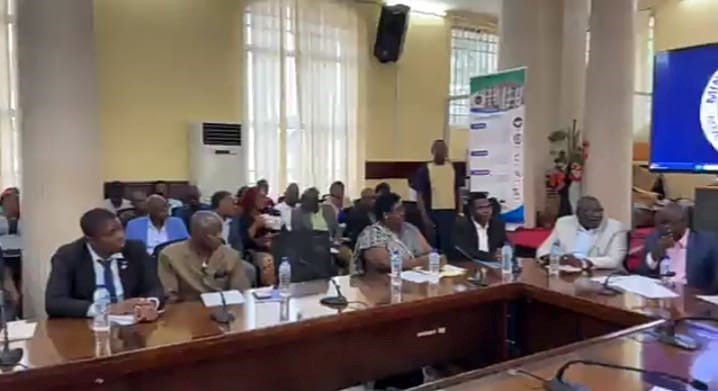The National Civil Registration Authority (NCRA) has officially launched the Vital Statistics Report at the Ministry of Finance Conference Hall on George Street in Freetown.
The event marked a significant achievement in fulfilling one of the core mandates of the NCRA, demonstrating the country’s commitment to a robust Civil Registration and Vital Statistics (CRVS) system.
Director General of the NCRA, Mohamed M. Massaquoi highlighted the importance of the Vital Statistics Report, which serves as a critical component of Sierra Leone’s Civil Registration system.
He emphasised that Civil Registration is the continuous, permanent, universal and compulsory recording of vital events such as births, deaths, marriages, divorces, and other civil events. These records are vital for various purposes, including legal, administrative, and statistical applications.
The director general stressed that Vital Statistics play a pivotal role in planning, monitoring, and evaluating Government programs and policies related to healthcare, education, public administration, Local Government planning and accountable service delivery.
He pointed out that the publication of the Annual Vital Statistics Report allows for real-time data on vital events, enabling Government agencies, UN bodies, development partners, and other organizations to track progress effectively, especially regarding the United Nations Sustainable Development Goals (SDGs).
Furthermore, he explained that the Report is a direct outcome of training provided by the United Nations Economic Commission for Africa (UNECA) aimed at improving the quality and reporting of Vital Statistics from Civil Registration records.
He maintained that Sierra Leone actively participated in these sessions which greatly accelerated the production of the 2022 Vital Statistics Report, ensuring compliance with international best practices and UN Guidelines.
The director general proudly stated that Sierra Leone is among the first countries to produce and publish a Vital Statistics Report consistent with the UN Guidelines and international standards, an achievement which he said is a testament to the country’s dedication to improving its CRVS system.
He revealed that in the process of producing the Report, modern statistical software was used to input, process, clean, and analyze data from various sources across the country saying it adheres to the United Nations Recommended Principles and Standardization of Vital Statistics measures to ensure high-quality findings.
The report, according to him, also provides a historical perspective on Civil Registration in Sierra Leone, dating back to the colonial era when records of births and deaths were primarily maintained for taxation purposes adding that with the establishment of the NCRA in 2016, the purpose of Vital Event Registration expanded to deciphering the characteristics of these events for various data needs beyond just recording numbers.
The director general extended gratitude to the Government of Sierra Leone, the Ministry of Health, and other Ministries and Departments for their continuous support in enhancing the CRVS and Identity Management in the country. Development partners, including the European Union, UNICEF, UNFPA, and others, were acknowledged for their support in technical assistance, capacity building, and funding for the improvement of CRVS.
Mohamed Mubashir Massaquoi concluded by calling on all stakeholders to continue supporting the registration of vital events, highlighting the crucial role it plays in the production of future Vital Statistics Reports for the benefit of the Government, development partners, and other organisations.
Sibeso Mululuba, the Deputy Representative of UNFPA, emphasised the importance of an inclusive CRVS system in ensuring human rights protection and providing cost-effective administrative data for sustainable development.
She stressed the significance of vital statistics in public health monitoring, policy development, resource allocation, and demographic analysis, expressing commitment to collaborate with the Government and other partners to strengthen the country’s CRVS system.
Additionally, Andrew Bob Johnny, a representative from Statistics Sierra Leone, congratulated the NCRA and the Government for this achievement. He emphasized the importance of the Report in providing vital statistics for planning and implementing development activities and the role of civil registration and birth statistics in ensuring the recognition of individuals before the law and access to essential services.
The Minister of Internal Affairs acknowledged the significance of the Vital Statistics Report for development, planning and implementation. The Minister stressed the importance of timely and complete statistics, particularly in areas such as marriage and deaths, and appealed to all stakeholders to recognize the significance of the Report.
The launch of the Vital Statistics Report in Sierra Leone signifies a significant step toward improving the country’s CRVS system, ensuring accurate and comprehensive data collection for planning and development.

